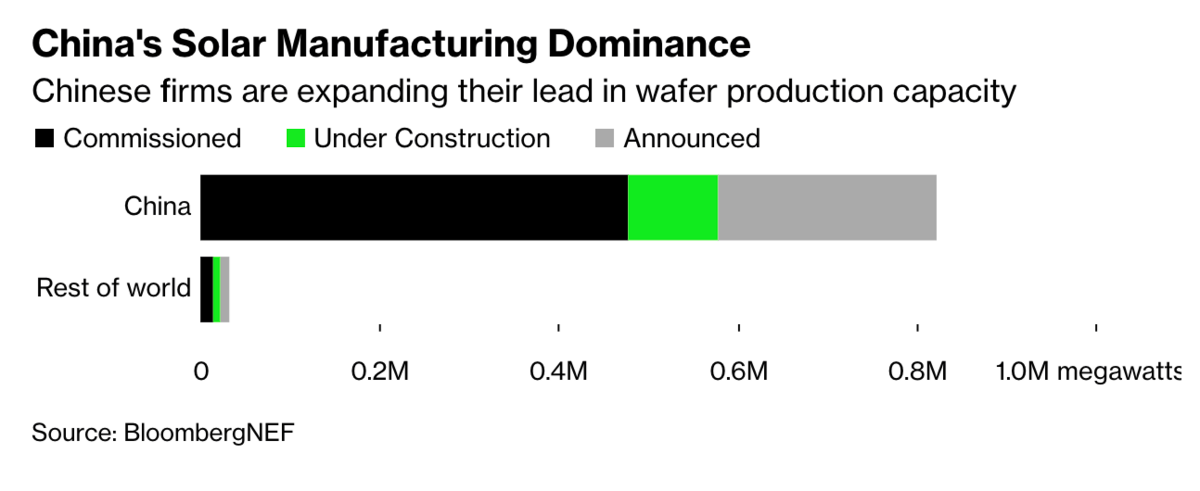Billionaires Against Gas Stoves
Where did that "ban gas stoves" talking point come from? Robert Bryce has the answer: well-heeled climate NGOs like Climate Imperative.
"How rich is Climate Imperative?" Bryce asks in his latest expose. "According to the latest report from Guidestar, the group took in $221 million in its first full year of operation. (Guidestar calls the income 'gross receipts.') That means that Climate Imperative, which is less than three years old, is already taking in more cash than the Sierra Club, which bills itself as the 'nation’s largest and most influential grassroots environmental organization.' According to Guidestar, the Sierra Club collected $180 million in its latest reporting year. Climate Imperative is also taking in more money than the Rocky Mountain Institute which collected about $130 million in its latest reporting year."
And where does the money come from? Billionaires, of course. John Doerr and Laurene Powell Jobs seem to be Climate Initiative's biggest donors. Doerr's networth sits at a plump $12.7 billion and Jobs's at a fat $17.7 billion. Michael Bloomberg and Jeff Bezos are also patrons of groups like the Natural Resources Defense Council and the Sierra Club.
Bryce goes on to demonstrate that not only are the arguments about gas stoves causing childhood asthma bunk, but if pursued, banning gas stoves would hurt the middle class. "Last March, in the Federal Register, the Department of Energy published its annual estimate for residential energy costs," Bryce writes. "It found that on a per-BTU basis, electricity costs about 3.5 times more than natural gas. It also found that gas was, by far, the cheapest form of in-home energy, costing less than half as much as fuels like kerosene, propane, and heating oil."
The climate NGO space is quickly becoming a leviathan of its own that cranks out policies it doesn't have to answer for. Such unaccountable power held in the hands of the few would be called tyranny by the right. And to the extent that these policies put the squeeze on everyday working Americans, the left would call it class war. Both would be correct.
China Ponders Solar Wafer Export Ban
After all the hubbub over China's domination of the solar industry and after the West has pursued protectionist policies to secure solar industries of its own, China is now thinking about biting back.
"China’s Ministry of Commerce and Ministry of Science and Technology are seeking public comment on adding some manufacturing methods key to producing advanced solar wafers on to its list of technologies it prohibits exporting," reports Bloomberg. "Wafers are ultra-thin silicon squares that are pieced together into solar panels, and China accounts for 97% of global output."

Chinese companies have been instrumental in reducing the cost of solar power by over 90% through the development of larger, thinner wafers.
“Beijing and the market leaders in China’s solar industry are undoubtedly worried about efforts from the US, EU, and India to develop homegrown solar manufacturing industries, so these recent tech export controls may very well be a response,” Cosimo Ries, an analyst with Trivium China, told Bloomberg. “Beijing is looking to slow down the speed at which its competitors can develop their own supply chains.”
No firm decisions have been made yet. But China's line of thought follows the recent passing of the Inflation Reduction Act in the US, which includes subsidies for clean-tech manufacturing and has led to a surge in announcements for new factories. Due to China's dominance in this market and the high barriers to entry, China may be looking to prevent the leakage of technology to foreign competitors.
Like what you're reading? Click the button below to get Grid Brief right in your inbox!
Conversation Starters
No friends in a crisis. "Norway announced on Friday measures to ensure its security of power supply and could limit some electricity exports to neighboring countries if there is a risk of shortages at home," reports Oilprice.com. "The government plans to introduce a mechanism under which electricity producers from hydropower – the most common power-generating source in Norway – will be responsible for keeping water levels in reservoirs above certain levels. Producers will also be asked to report water reservoir levels on a regular basis, the Norwegian government said."
Big Oil and the White House are still locking antlers. "The White House on Friday launched a fresh attack against U.S. oil companies, accusing them of using profits to pay shareholders instead of boosting supply, after Chevron Corp said its annual profit doubled for 2022," reports Reuters. "Chevron posted a record $36.5 billion profit for 2022 that was more than double year-earlier earnings, kicking off what analysts expect to be a bumper earnings season for global energy suppliers. Earlier this week, Chevron said it would triple its spending on share repurchases to $75 billion over five years at current guidance. Other oil companies are expected to follow suit."
Natural gas generation has killed off most of the coal in Pennsylvania over the last two decades. "Natural gas-fired power plants generated 2% of the electricity produced in Pennsylvania in 2001. Over the next 20 years, natural gas-fired generation in the state increased rapidly, reaching 52% in 2021. Natural gas displaced most coal-fired generation, which fell from 57% of the electricity generated in Pennsylvania in 2001 to 12% in 2021," reports the Energy Information Administration. "Pennsylvania sits on top of the Marcellus shale, and the portions of the Marcellus under Pennsylvania and West Virginia constitute the largest natural gas field in the United States. Although natural gas has been produced in the Marcellus for a long time, production from the Marcellus became much more economical after fracking and horizontal drilling were developed. The first Marcellus shale natural gas well using these techniques was drilled in Pennsylvania in 2004. At the same time that natural gas production in Pennsylvania was increasing, coal production was declining, falling 40% from 74.1 million tons in 2001 to 42.5 million tons in 2021."

Crom's Blessing
